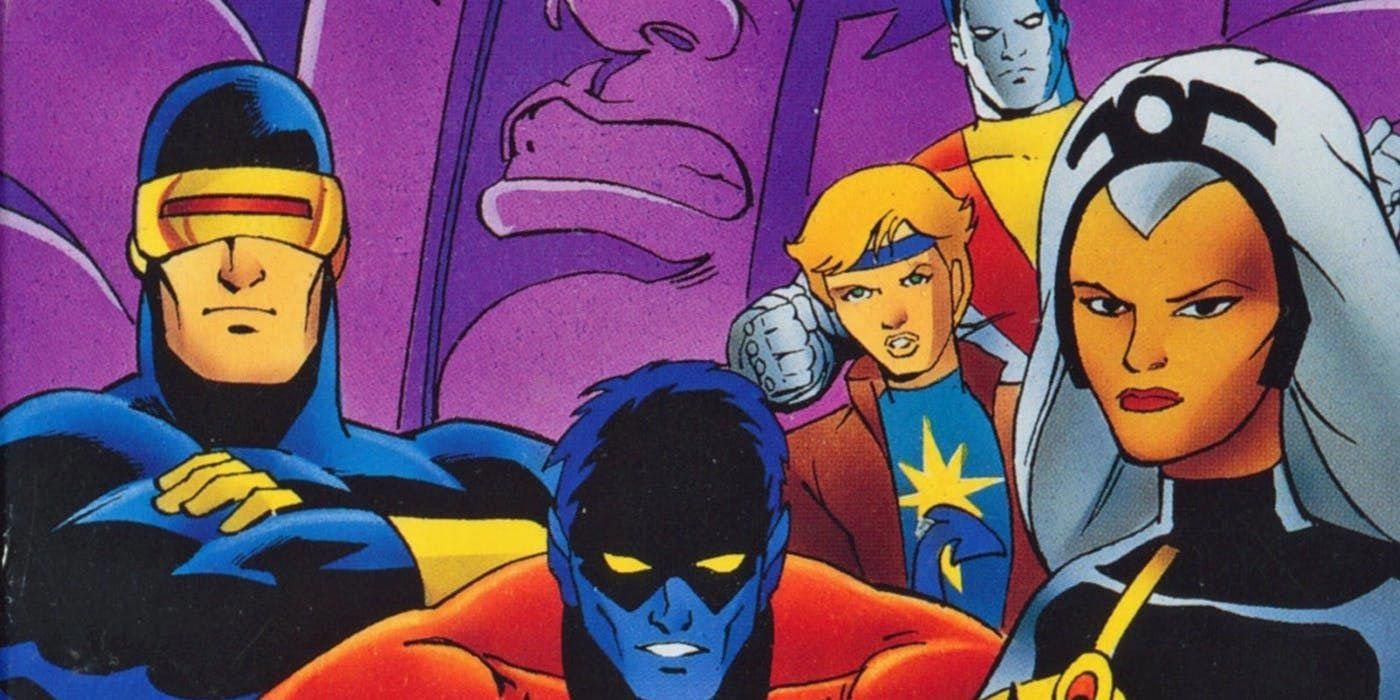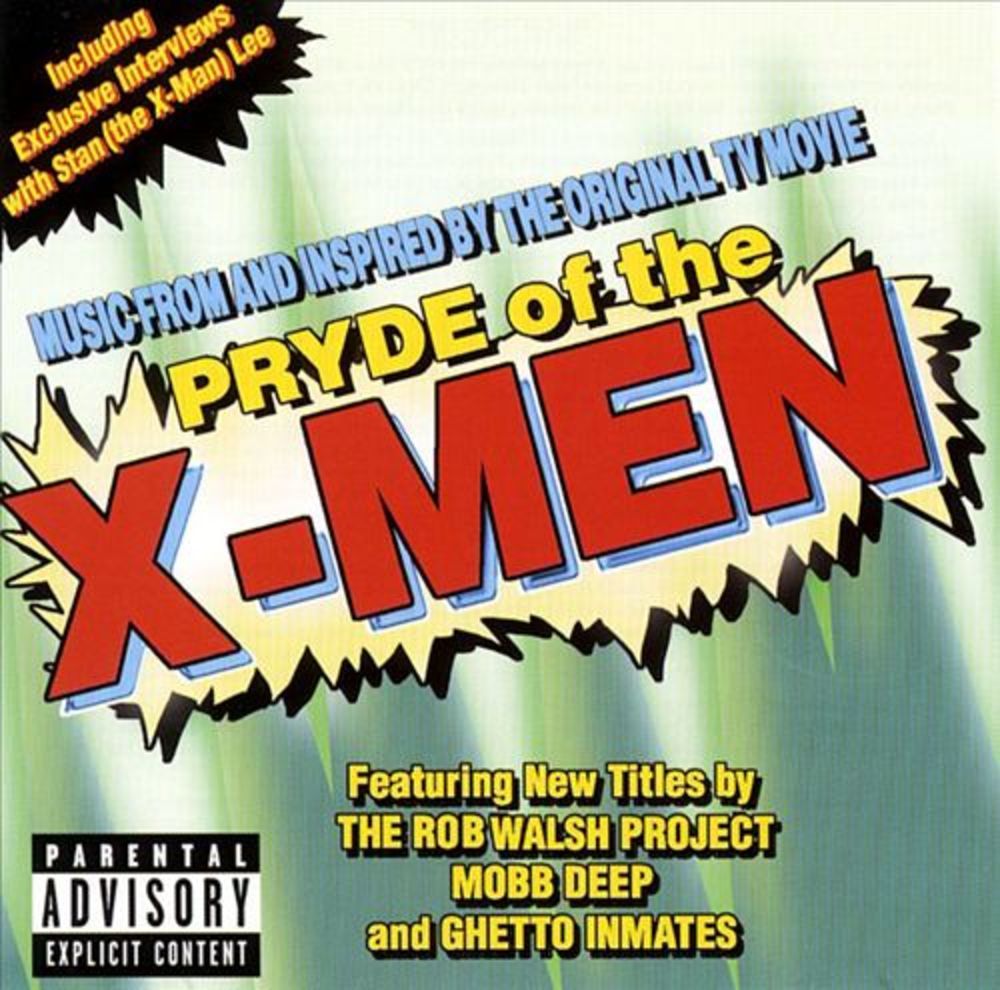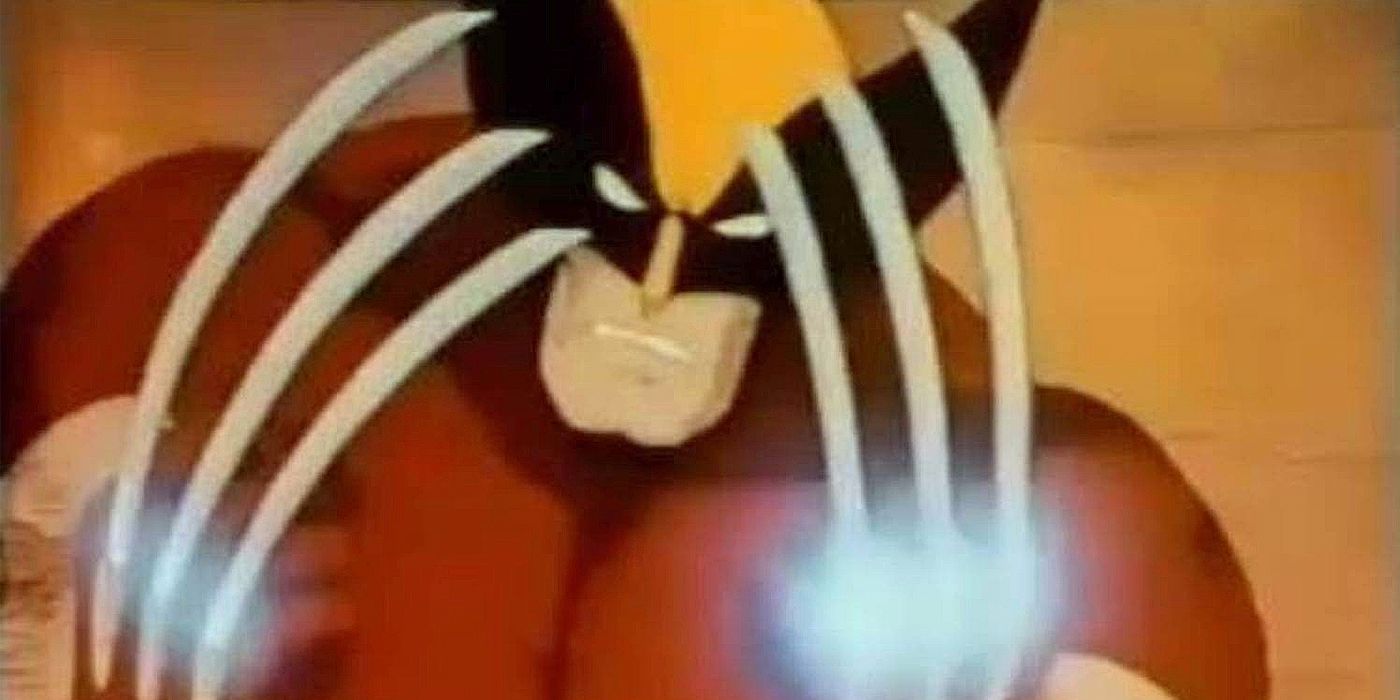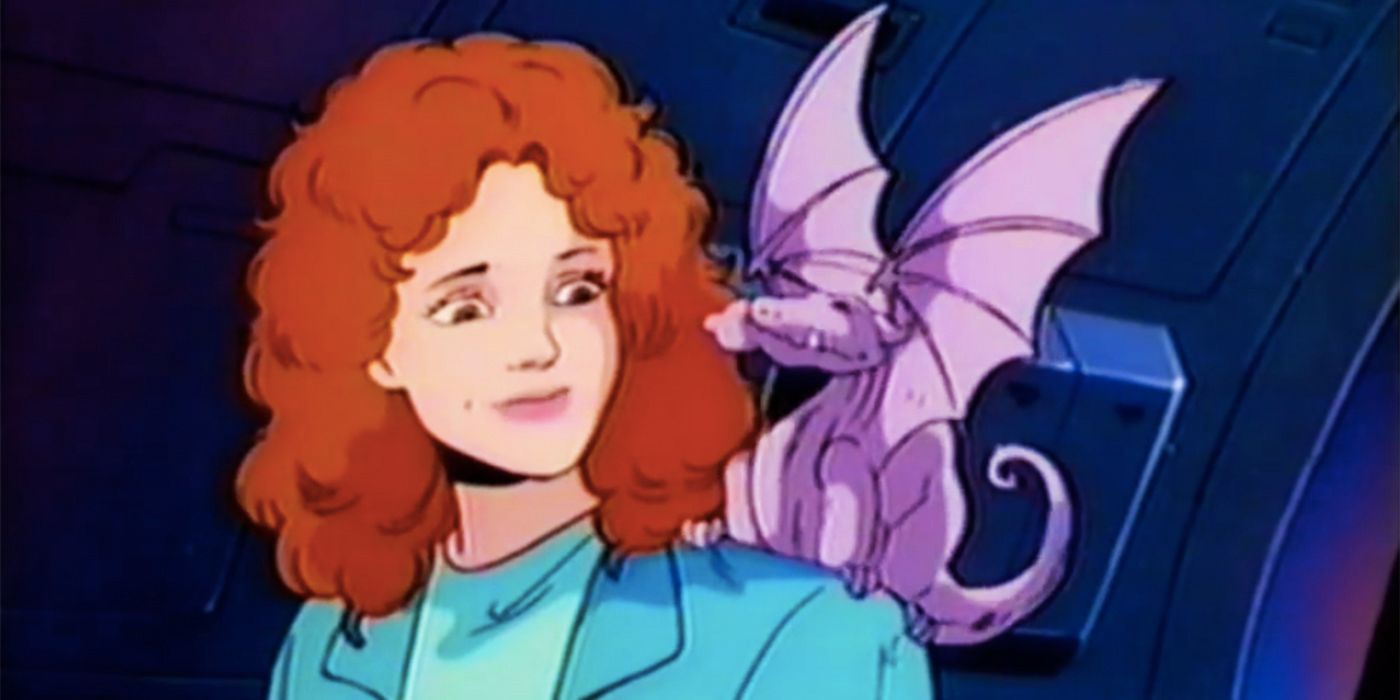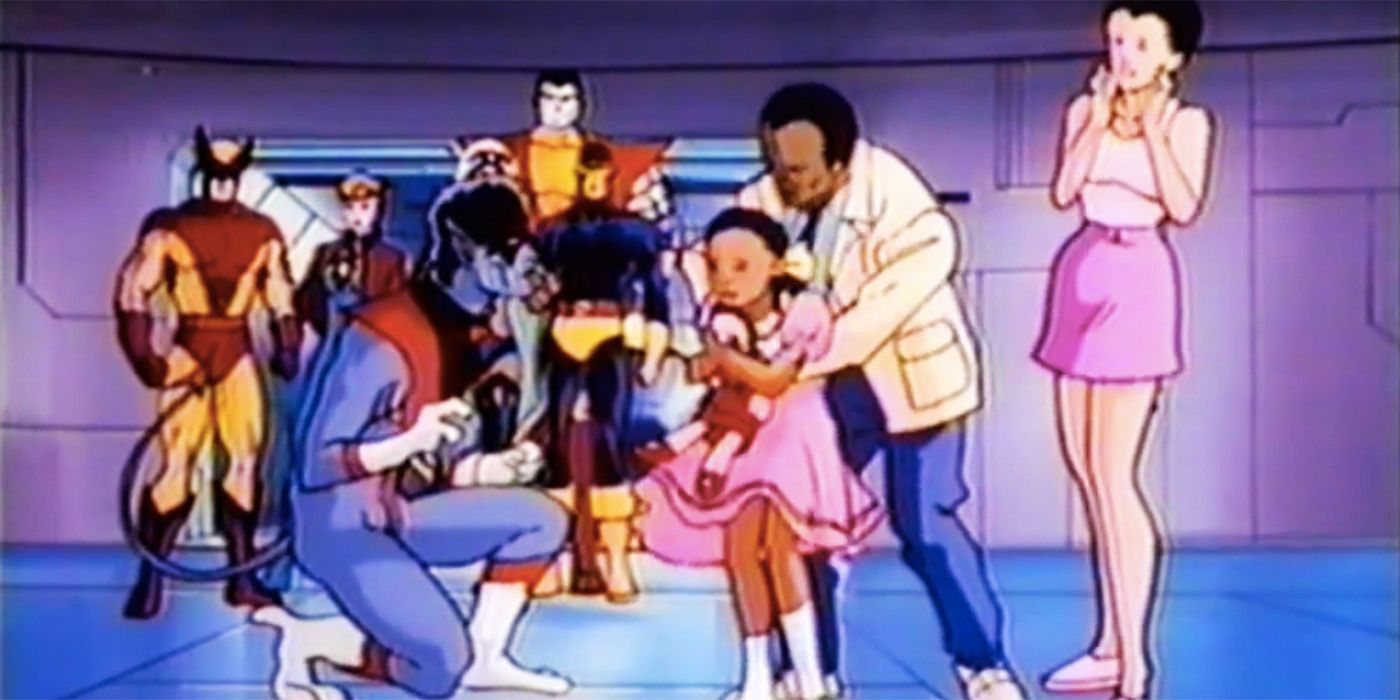It's a special edition of Adventure(s) Time, where we take a look back at animated heroes of the past. And, sometimes, the unusual merchandise associated with various animated properties. This week, we're looking at something quite strange indeed.
Pryde of the X-Men debuted Sept. 30, 1989, as a part of the syndicated Marvel Action Universe. I've covered the history of the show before, in case you're curious about the '80s attempt to adapt the X-Men into an afternoon action-adventure series. In summary, the script lacked most of the character and nuance of the comic. And ... Wolverine was Australian. It featured lovely animation from the Japanese studio Toei, however.
The lasting influence of the failed pilot is minimal, at best. The show is largely responsible for Kitty Pryde's absence on the now-legendary 1990s X-Men animated series, and that's basically it. So, what on Earth is the Pryde of the X-Men original soundtrack?
The cover boasts that it features "Music from & Inspired by the Original TV Movie," which is certainly one way to describe a failed 22-minute pilot. Especially when, as acknowledged by the liner notes, the original master tapes of the cartoon's soundtrack had deteriorated long before the album was released. Now, is any of the score from the cartoon recreated for the album? Nope. There's plenty of industrial rock and gangsta rap, however.
Introduced by the Recording Industry Association of America (RIAA) in 1985, following pressure from the Parents Music Resource Center advocacy group, the Parental Advisory label is a warning of explicit content. The famous black-and-white box we know today first appeared on 1990's Banned in the U.S.A., by 2 Live Crew. Likely, no viewers of Marvel Action Universe expected the soundtrack from one of its shows to feature the sticker.
This outright oddity has been archived on YouTube, if you need some evidence it actually exists. Locating any information on this album is difficult, but I'll attempt to explain this the best I can. The 1989 Pryde of the X-Men pilot was scored by Robert J. Walsh, an accomplished TV composer whose 1980s cartoon work includes Transformers and Dungeons and Dragons. (Walsh passed away last year at age 70.)
The year 2000 brought us the long-awaited X-Men theatrical film. Pop-music soundtracks featuring the hottest artists were still common in this era, especially for comic book films. The soundtracks for Joel Schumacher's Batman films are nearly perfect representations of late-1990s radio, for example. And the 1997 Spawn soundtrack is one strange blend of industrial and electronic music with some huge stars attached (specifically conceived by executives as a way to ease American kids into electronica). X-Men, however, lacked the cash-in soundtrack album. More than likely, director Bryan Singer felt a pop tie-in didn't fit the tone of his film.
Filling the void was none other than Rob Walsh, who maintained some connections to Stan Lee. His original score for Pryde no longer existed, and it's possible he didn't possess the legal rights to use the music anyway. What he could do, however, was release new music "inspired" by the "movie" with his Encino Light Orchestra. These are traditional action TV scores, instrumentals you likely could imagine in the background of an '80s X-Men cartoon.
Woven between the tracks are interview snippets with Lee. The cover's claim it's an "exclusive" interview is hilarious if you recall Lee wasn't exactly shy about putting on a mic. And his comments don't really differ from what you heard during any other press tour he went on to promote the X-Men films. (Devoted X-Men fans will be amused by Lee's claim he was the one who gave Magneto sympathetic motivations all the way back in the 1960s.)
Showing up as filler on the album are industrial rock and gangsta rap tracks that have absolutely no business being here. The rock tracks are shameless Rob Zombie knockoffs, with some generic and ultimately unobjectionable lyrics. These songs could've ended up on a Batman Beyond movie's soundtrack, really. Most of the rock tracks don't even fake an X-Men connection, but there is "X-Men Comin'," which sounds as if Walsh took a demo and tacked on the title as a chant between verses. There's also the spoken-word portion, which is glorious: "Superheroes ... super-fly. Save the world in a blink of an eye."
The first rap track is "Higher Than High" by Ghetto Inmates, fronted by rapper Tru Life. It's a clean track warning against drugs and violence. Nothing to do with the X-Men, but perhaps "age-appropriate" rap for the intended audience.
The appearances of Mobb Deep and Prodigy, however, certainly aren't appropriate for the kiddies. Mainstream rappers will alter their lyrics for the sake of a big, commercial soundtrack. (Mace once rapped about the Rugrats!) These tracks, however, were clearly throwaways not intended for any superhero project. Interestingly, Prodigy and Tru Life already had a falling out by the time of the album's release, leading to one of the nastier hip-hop feuds of the era.
How did any of this material appear on an X-Men album? Well, notice the word "official" doesn't grace the cover. And that's not quite the X-Men's logo, is it? Works that critique or analyze copyrighted properties are legally allowed.
This album is very much in the gray zone, but perhaps the Lee interview is enough to qualify the album as being "about" the X-Men. And Rob Walsh does have a legitimate connection to Pryde of the X-Men, even if he couldn't use any of the actual music created for the pilot.
The rest of the music appears to be songs Walsh or an associate had acquired the rights to. Very likely intended for another project, they were cannibalized for this album in order to pad out the runtime. The album was released right before the movie's debut in 2000, meaning we're a year away from the release of the iPod. Compact discs still reigned (although they were close to falling behind digital mp3 files), and buyers expected at least forty minutes of entertainment for their money. It's amazing Walsh didn't include more interview clips from Stan Lee and keep the album family-friendly, but what a bizarre curiosity he created.
So that’s all for now. Until next time, check out the G. I. Joe novels I wrote for the Kindle Worlds project for free over at Smashwords. You can also find me on Twitter.

